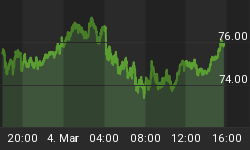(And 3 Shocking Answers!)
Bob Prechter, President of Elliott Wave International (EWI), is no stranger to challenging the status quo. His New York Times bestseller, Conquer the Crash, was published in 2002 before anyone was even talking about the current financial crisis.
In his recent 10-page market letter, Prechter shifts his focus to the government's role in the latest financial turmoil.
Elliott Wave International is offering the full 10-page report free if you'd like to read all 28 answers. Visit EWI to download the full report, free.
Here are 3 questions excerpted from the free report:
1. Didn't Congress create the Federal Housing Authority, Fannie Mae, Freddie Mac, Ginnie Mae and the Federal Home Loan Banks for the purpose of helping the public buy homes?
You're kidding, right? What happened is that clever businessmen schemed with members of Congress to create privileged lending institutions so they could get rich off the public's labor. In return, members of Congress got big campaign contributions from the privileged corporations and, as a bonus, even more votes. The public's welfare had nothing to do with it.
Who celebrated when Congress passed the latest housing bill? Answer: "The California Mortgage Bankers Association applauded Congress for permanently increasing the size of loans Fannie Mae and Freddie Mac can buy...." (USA, 7/28) The legislation exists to "protect the nation's two largest mortgage companies...." (NYT, 7/24) Who took out full-page ads to encourage Congress to "enact housing stimulus legislation now"? Answer: the National Association of Home Builders. Who celebrated when the administration "unveiled a new set of best [sic] practices designed to encourage banks to issue a debt instrument known as a covered bond"? Answer: "[Treasury Secretary] Paulson was joined at the news conference by officials from the Federal Reserve [and] the Federal Deposit Insurance Corporation.... Officials from banking giants Bank of America Corp., Citigroup Inc., JPMorgan Chase & Co. and Wells Fargo & Co. issued a joint statement saying, 'We look forward to being leading issuers'" (AP, 7/29) of covered bonds. And voters still believe that Congress is there to help the needy.
2. Who cares if a bank goes under? Won't the FDIC protect depositors?
The FDIC is not funded well enough to bail out even a handful of the biggest banks in America. It has enough money to pay depositors of about three big banks. After that, it's broke. But here is the real irony: The FDIC, as history will ultimately demonstrate, causes banks to fail. The FDIC creates destruction three ways. First, its very existence encourages banks to take lending risks that they would never otherwise contemplate, while it simultaneously removes depositors' incentives to keep their bankers prudent. This double influence produces an unsound banking system. We have reached that point today. Second, the FDIC imposes costly rules on banks. In July, it "implemented a new rule...requiring the 159 [largest] banks to keep records that will give quick access to customer information." As the American Bankers Association puts it, the new rule "will impose a lot of burden on a lot of banks for no reason." (AJC, 7/19) Third, the FDIC gets its money in the form of "premiums" from -- guess whom? -- healthy banks! So as weak banks go under, the FDIC can wring more money from still-solvent banks. If it begins calling in money during a systemic credit implosion, marginal banks will go under, requiring more money for the FDIC, which will have to take more money from banks, breaking more marginal banks, etc. The FDIC could continue this behavior until all banks are bust, but it will more likely give up and renege. Remember, every government program ultimately brings about the opposite of the stated goal, and the FDIC is no exception.
3. Who are the "homeowners"?
Everywhere you turn, news articles are discussing how Congress, the President and the Fed are taking action to "help homeowners." People's understanding of this statement is 100 percent wrong. The homeowners in question are not the residents of the houses. The homeowners are banks. Unlike some states, Georgia made its law very specific on this point. Our local paper recently explained that, by recognizing the reality of ownership, "Georgia employs primarily a nonjudicial foreclosure" and therefore "has one of the fastest procedures in the country." Specifically, "The property owner gives the mortgage holder a 'security deed' or a 'deed to secure debt'. Technically, until the debt is paid, in full, the mortgage holder owns the property and allows the borrower to possess it." (GT, 8/6) In states where the mortgage holder is deemed the property owner, the title is merely a legal technicality. The day he stops making mortgage payments, he no longer owns the property; the bank does. After foreclosure, many of those whom politicians and the media call homeowners will simply go from paying interest to a bank to paying rent to a landlord. For those with little or no equity, it's not that big a deal. The real devastation is happening in banks' portfolios, and banks, not home-dwellers, are the ones whom the government is trying to rescue, at others' expense.
One might be tempted to charge therefore that Congress makes its laws for the purpose of helping banks. This idea, too, is incorrect. Helping banks is merely a side effect. The reason that Congress creates privileges for bankers is to benefit politicians. They make laws in response to campaign contributions from lending institutions, real-estate organizations and builders' associations. They also garner votes from mortgage holders and, miraculously, from voters who think that their "representatives" are being "compassionate."
The previous 3 questions and answers from Bob Prechter were excerpted from his recent 10-page market letter, The Elliott Wave Theorist.
Elliott Wave International is offering the full 10-page report free if you'd like to read all 28 answers. Visit EWI to download the full report, free.















